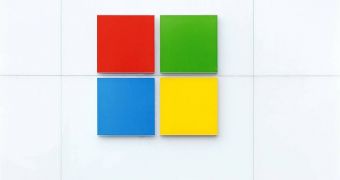There's a lot of buzz around Windows 8's performance lately, with many claiming that Windows 7 is still a lot faster and more stable than Microsoft's new flagship operating system.
At the same time, the long-distance race between Windows and the other platforms on the market continues, as both Linux and Mac OS X are getting new users every day.
While it's pretty difficult to determine which of these is "faster", an anonymous Microsoft developer tries to put things straight.
Even though he refused to reveal his name for obvious reasons, the Microsoft dev explained in a comment on Hacker News (deleted, then reposted on zorinaq.com) that Windows “is indeed slower than other operating systems in many scenarios, and the gap is worsening.”
This doesn't sit well with Steve Ballmer, that's for sure. But the main reason for this difference between Windows and the other platforms is the approach the companies have on performance improvements.
“The cause of the problem is social. There's almost none of the improvement for its own sake, for the sake of glory, that you see in the Linux world,” the developer writes.
“Here, if you do that and you're not on the object manager team, then even if you do get your code past the Ob owners and into the tree, your own management doesn't care. Yes, making a massive improvement will get you noticed by senior people and could be a boon for your career, but the improvement has to be very large to attract that kind of attention,” he continues.
“Incremental improvements just annoy people and are, at best, neutral for your career. If you're unlucky and you tell your lead about how you improved performance of some other component on the system, he'll just ask you whether you can accelerate your bug glide.”
The developer then goes on to explain that Microsoft has lost a lot of talented people who preferred to move to Google or other large companies in Seattle. While the reasons are unknown, it appears that Microsoft has decided to go for “youths straight from college to replace them.”
And that's quite alright, but as the developer points out, many young employees prefer to implement new technologies than to improve the existing ones.
“These junior developers also have a tendency to make improvements to the system by implementing brand-new features instead of improving old ones. Look at recent Microsoft releases: we don't fix old features, but create new ones. New features help much more at review time than improvements to old ones,” he explains.
“We fill headcount with nine-to-five-with-kids types, desperate-to-please H1Bs, and Google rejects.”
Of course, all this can't possibly spell good news for the Redmond-based tech giant, so the developer then decided to publish a second comment to apologize for his “misleading impression.”
The anonymous dev explained that Windows and Microsoft still have talented employees, but some of the projects do not work as they were supposed to.
“No matter what you think of the Windows 8 UI, the system underneath is rock-solid, as was Windows 7, and I'm proud of having been a small part of this entire process,” he concludes in a somewhat apologetic statement.

 14 DAY TRIAL //
14 DAY TRIAL //